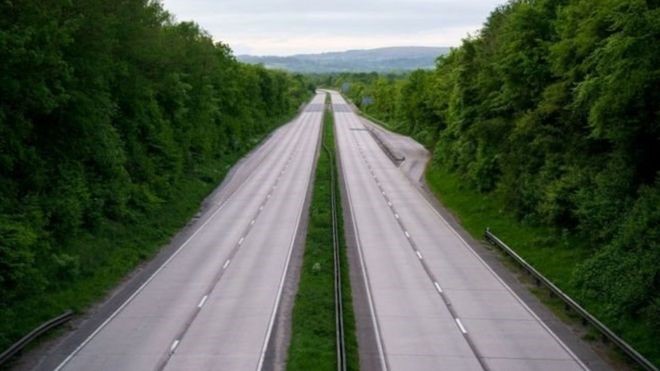Everything was closed in lockdown, so did the earth get any less hot?
During the lockdown, there has been a big fall in emissions of greenhouse gases and air polluting elements all over the world. But, scientists say that it will make an equal difference on the heat of our earth.
This new analysis shows that by 2030 the global temperature will be just 0.01 degree Celsius lower than expected.
However, the authors say that the method of recovery can make a big change in long-term outlook.
Green jobs and green investments may prevent the world’s temperature from rising by more than 1.5 degrees Celsius by the middle of this century.
Previous studies have proved that the closure of transport systems worldwide due to the epidemic has led to a significant reduction in the emission of greenhouse gases.
When the epidemic was at its peak, the worldwide carbon dioxide (CO2) emission decreased by 17 percent.
The new study is based on the global mobility data of Google and Apple.
Professor Pierce Forster of the University of Leeds, who led this study, took his daughter Harriet along in this research. At that time, his daughter’s A-Level examination was canceled.
Along with other researchers, he assessed how changes in 10 different greenhouse gases and air pollutants occurred in 123 countries between February and June 2020.
They came to know that this decline reached its peak in April. During that time, CO2, nitrogen oxide and other emissions were reduced by 10–30 per cent all over the world. The main reason for this was the decline in movement on the ground.
However, this new work suggests that this drop in emissions of greenhouse gases has in reality proved to eliminate each other’s effects in terms of heat.
Nitrogen oxide released from transport produces heat in the atmosphere.
Although it has fallen by 30 per cent, the same decline has also come in sulfur dioxide, which is basically the result of burning of coal.
The emission of this gas helps in the formation of aerosols, which convert sunlight back into the sky and keep the Earth cool.
Such a balance and the temporary nature of epidemic restrictions mean that there is hardly any impact on warming by 2030.
Professor Pierce Forster says, “Although temporary changes may prove helpful, you will have to reduce CO2 emissions permanently, only then will you be able to stop global warming.”
He says, “CO2 stays in the atmosphere for a long time. In such a situation, you have to keep its emissions at zero for a long time. Only after this the effects of decades of emissions will start to wane.”
Harriet Forster wrote this paper with her father. She says that although the recent effects will not last long, it is a big opportunity for governments to change their ways.
She says, “Our paper shows that the real impact of the lockdown on the environment is minor. The important thing is that we have been given a big opportunity so that we can grow our economy by investing in green industries. This will help our environment in future Can have a big impact. “
The authors say that the traffic on the roads is still very low in many countries. Google’s data shows that all means of transport in the UK are less than 25 per cent. While according to official figures from the UK government, 12 per cent of cars are still running less, but buses and trains are running less than 50 per cent.
The team of researchers says that if the movement returns to its normal level and there is a huge investment on petroleum during this time, there is a great possibility that the world will cross the threshold of 1.5 degrees Celsius by 2050.
But, if the recovery is through green means, that means the use of fossil fuel is reduced and by 2050, global emissions are brought to a net zero level, then 55% of the world will be expected to remain below 1.5 degrees Celsius by 2050.
So what is necessary to do for this?
Study co-author and Professor Corinne Le Querrey of the University of East Anglia says that many steps have to be taken now.
She says, “Cycling and walking in cities will have to be supported. It has many benefits for the environment, reducing air pollution and health.”
According to him, “As long as social distance rules continue, work from home should be encouraged. This will reduce the pressure from public transport. All cars should be electrified as soon as possible.”
Professor Forster hopes that the world will tackle this challenge. He says, “Often disasters historically bring the biggest changes.”
He says, “For the first time, the government, industry and the general public are all standing together and everyone is feeling that the future of writing can be written only with green jobs and green investments.”




